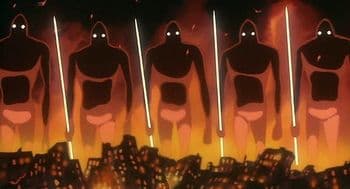🧵 View Thread
🧵 Thread (6 tweets)

Example: Hayao Miyazaki was born in 1941, and survived a WWII bombing when he was 4, which deeply affected him. Once you start looking for this in his movies you see it everywhere (spoilers) - e.g. the superweapons in Nausicaa and Castle in the Sky. https://t.co/RrVxD3jZdx


In general Japanese fiction gets a lot richer once you start reading it as grappling with Japanese cultural trauma, the most obvious example being the bombings of Hiroshima and Nagasaki. When I learned about these in school they were 100% abstractions, 0% real to me.

@QiaochuYuan https://t.co/MWwoAwEt4a

I'm going to look this up, but I'd love to hear some anecdotal thoughts and responses: why were robots, cyborgs, Transformers, Astro Boy, etc such a big hit in Japan? Akira, Ghost In The Shell – these are legendary now, but what were their origins? Post-war Industrialization?

Ex #2: the Cultural Revolution. Hooooly crap. This really happened to my parents, and to the parents and grandparents of tons of Chinese people, and Chinese-Americans never talk about it. It is our Holocaust. We've all been shaped by this cultural + ancestral trauma.

My parents fucked me up, but: https://t.co/ETaBYoVvN8

And it's not like they did that in a vacuum either - they both grew up in China during the Cultural Revolution, where valuing your own experiences and feelings could get you publicly humiliated, tortured, maybe killed. I've never asked them about it. Ancestral trauma, man.